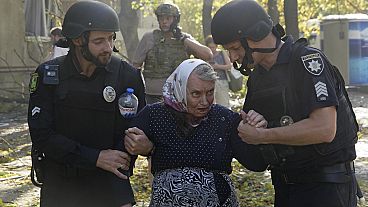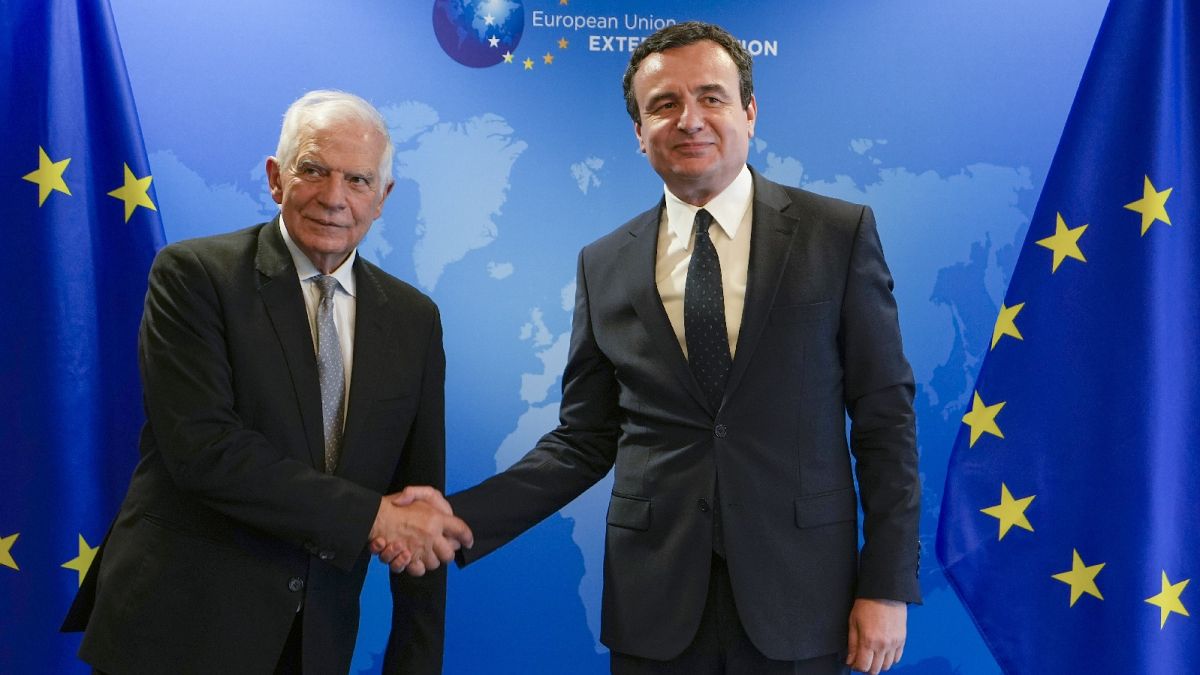Brussels has warned both Belgrade and Pristina that refusal to compromise jeopardises Serbia and Kosovo’s chances of joining the European Union.
The European Commission has warned Kosovo that the closure by police of several Post of Serbia branches could have "very negative consequences" for local people and that it violates agreements under the EU-facilitated Dialogue.
At least nine branches of the Post of Serbia were raided in the north of Kosovo by police on Monday in what the EU described in a statement as a "unilateral and uncoordinated step".
A spokesperson for the European Commission added on Tuesday that "the EU has said very clearly what we expect from [Kosovo Prime Minister Albin] Kurti’s administration".
"We expect that they reconsider and that they tackle this issue in the framework of the EU-facilitated Dialogue, that they come up with a proposal that would deal with the possible negative impacts of this decision on the people in the north of Kosovo," said Peter Stano, the EU spokesperson.
Tensions between Serbia and Kosovo - whose 2008 independence from Serbia is not recognised by Belgrade - ratcheted up last year following a dispute over the validity of local elections in the predominantly Serbian part of northern Kosovo which sparked violent unrest.
The EU adopted temporary measures against Kosovo over the violence which included a suspension of high-level contacts and financial cooperation.
Since then, Pristina also decreed that the euro, its official currency since 2002, is to be the only legal currency in Kosovo, effectively banning the use of the Serbian dinar.
The currency is widely used by the Serb minority in Kosovo which relies on financial support from the Serbian government and who access the funds through Serbian institutions including banks and Post of Serbia.
Belgrade slammed Monday's closures as "yet another example of the open display of force and unlawful actions by the temporary self-government institutions in Pristina".
According to Petar Petković, the director of the Office for Kosovo and Metohija in the Government of the Republic of Serbia, Kurti was directly "provoking a war or conflicts on the ground at any cost, all in full view of the international community".
Meawhile the EU Commission spokesperson has said the fact that EU introduced measures against Kosovo last year is the reflection of steps that led to escalation.
"Now we see more unilateral steps, more uncoordinated action. This is not really de-escalation, this leads to further escalation. I think this should be very clearly understood by those who take decisions these in Pristina," explains Stano.
Brussels has warned both Belgrade and Pristina that refusal to compromise jeopardises Serbia and Kosovo’s chances of joining the bloc.












